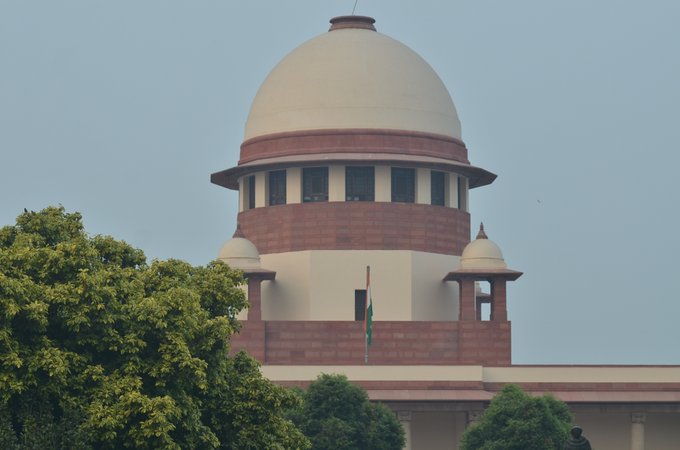Sreya Kanugula
The Supreme Court gave notice on the pleas filed against the judgment given by the High Court of Bombay to quash the government of Maharashtra’s notification of exclusion of 18 villages from the Kalyan-Dombivili Municipal Corporation (KDMC).
A bench lead by the CJI gave the notices on the filed special leave petitions of the KDMC and the Maharashtra government against the High Court division bench’s judgment passed on the 4th of December in 2020.
The legal counsel for KDMC’s Municipal Commissioner, senior advocate Dr. Abhishek Manu Singhvi, made the submittion that the judgment was taken on a “pedantic and technical” view of the High Court. He asked the bench to grant a timely returnable date since the municipal elections were due to be held in April 2021.
The legal counsel on behalf of the Maharashtra government, senior advocate Mukul Rohatgi, requested for a stay order on the High Court’s judgment.
However, the bench lead by the Chief Justice of India declined this request for a stay application and informed that it will be taken into consideration after their issued notice returned.
The High Court’s division bench comprising Chief Justice Dipankar Dutta and Justice GS Kulkarni had declared the state government’s notification that was passed on the reduction of KDMC limits on the 24th of June in 2020, as “null and void.”
They did so since it was passed without any “effective and meaningful consultation” with the administration of the municipal corporation, they stated.
The notification passed by the government of Maharashtra was on the formation of a separate council called the Kalyan Suburban Municipal Council for the 18 villages separated from the KDMC’s realm.
They had defended this notification with the basis that it was declared upon the Municipal Commissioner’s recommendation.
The High Court had upheld its judgment since according to the Maharashtra Municipal Corporation Act of 1949, the Municipal Commissioner cannot be equated with the entire Corporation itself.
The High Court judgment written by Justice Kulkarni stated that:
“In our opinion, the intent and purpose of the legislature providing for ‘consultation with the Corporation’ cannot be rendered an empty formality, it is required to be meaningful to achieve the desired legislative intent. The intended purpose is to have an effective opinion from the Municipal Corporation on the proposed action of either inclusion or exclusion of areas in relation to the concerned Municipal Corporation.”
“Consultation in the present context did not mean any approval or concurrence, but the views of the Corporation were required to be ascertained by the State Government in reaching its conclusion on the matter one way or the other. It is certainly a prior consultation as the provision uses the words “after consultation with the Corporation”. This requirement of the provision certainly could not have been rendered nugatory by having an opinion of the “Municipal Commissioner” who is not the Corporation within the meaning of 1949 Act but an officer of the Municipal Corporation.”

